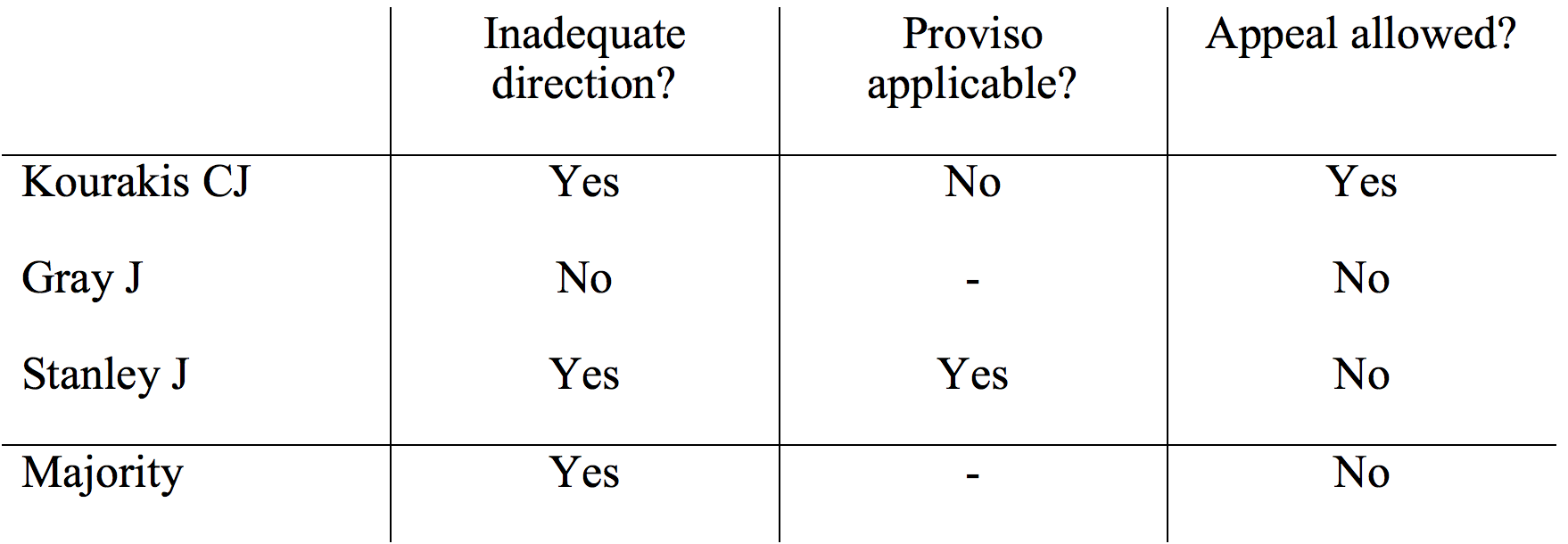Yesterday’s two judgments mark the final step of the transition from the French Court to the Kiefel Court. Until this week, judgments published by Susan Kiefel have been attributed to ‘Kiefel J’, even though she has been Kiefel CJ since January 30th. In today’s two decisions, the first, Ecosse Property Holdings Pty Ltd v Gee Dee Nominees Pty Ltd [2017] HCA 12, has a joint judgment attributed to ‘Kiefel, Bell & Gordon JJ’, while the second, Kendirjian v Lepore [2017] HCA 13, has a solo judgment attributed to ‘Kiefel CJ’. The obvious explanation of the shift is that ‘Kiefel J’ is used for judgments where Susan Kiefel was still a mere Justice when she sat at the hearing. Ecosse was heard on 14th December last year, at a time when Robert French was still Chief Justice – he had six weeks left in the role – but by then he had not heard any cases for over two months and the Court had already held a ceremony to mark his retirement. By contrast, Kendirjian is the fifth case heard by the High Court since Susan Kiefel became Chief Justice, but the first to be decided.
So, what were the first ever words in a judgment by Kiefel CJ?:
I agree with Edelman J.
